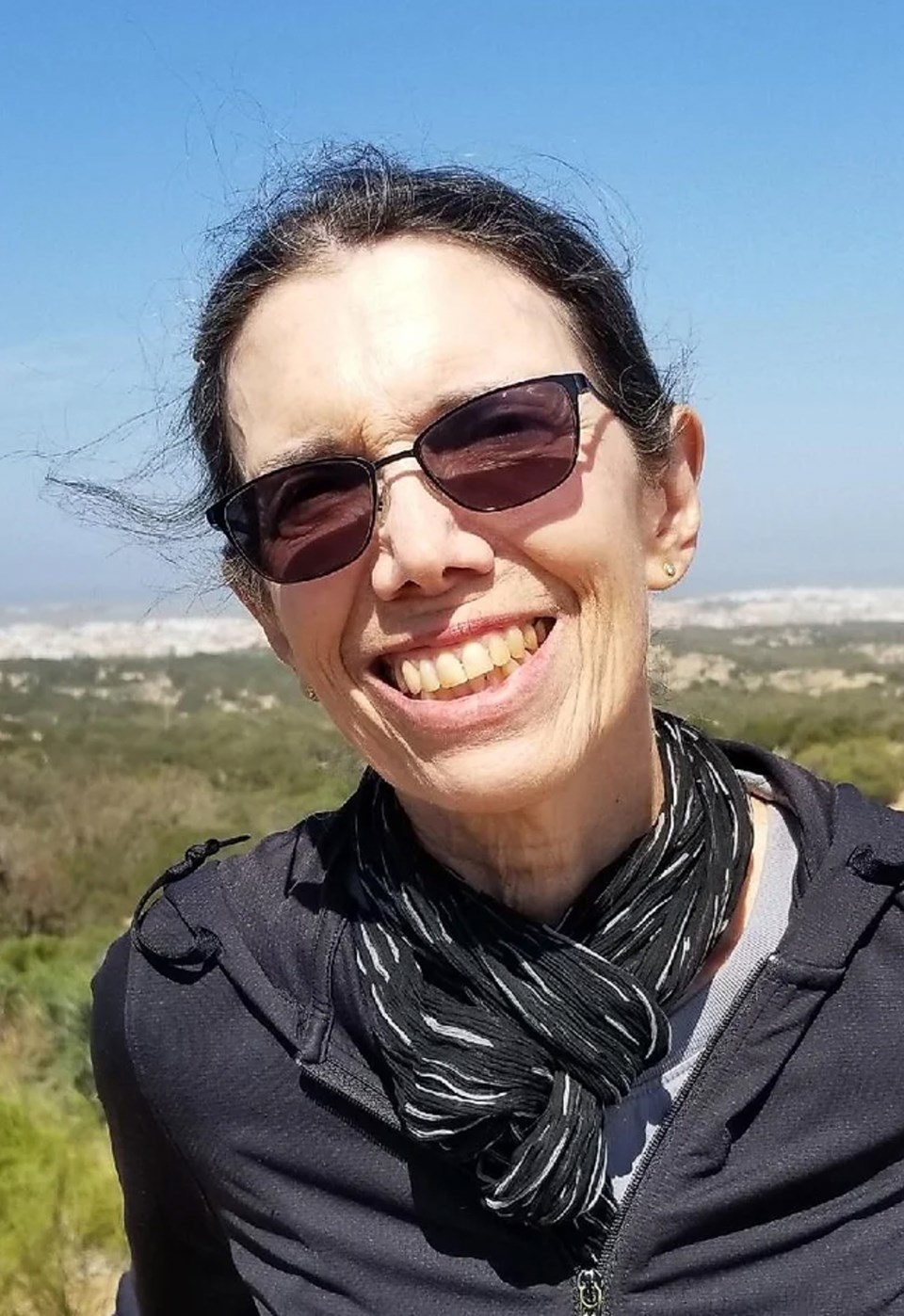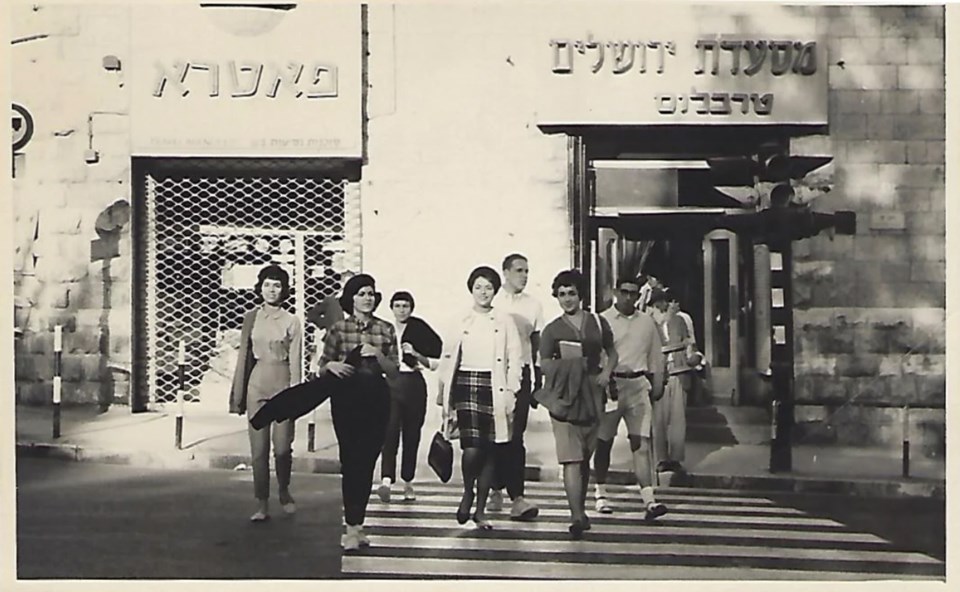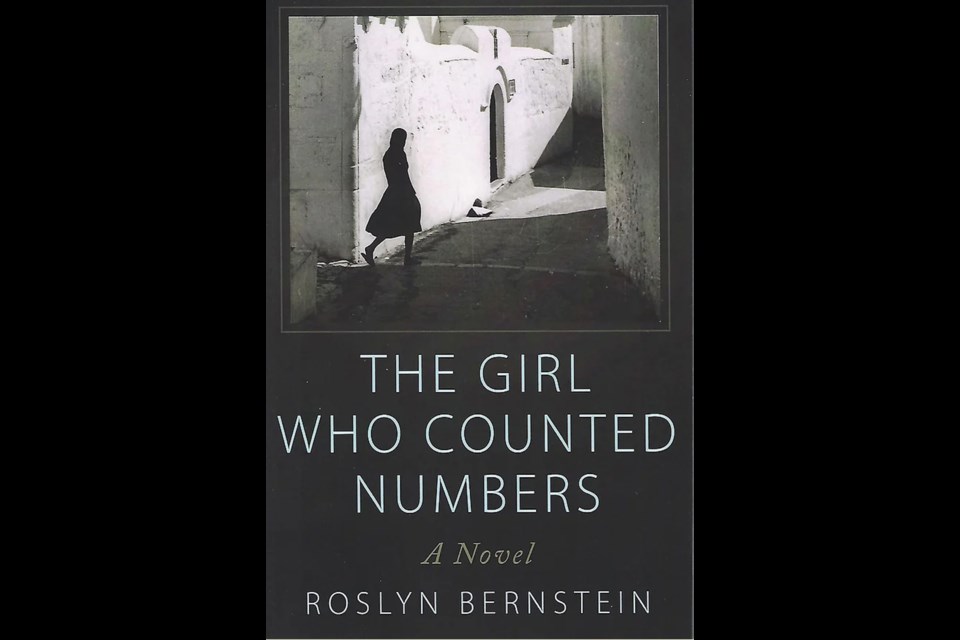After a formative visit to Jerusalem as a teenager in 1961, writer Roslyn Bernstein has written an award-winning novel based on the experience, one that lodged so deep within her soul, it took 61 years to tease out.
The book, The Girl Who Counted Numbers, was released in October 2022. In January, it was awarded runner-up for the Goldberg Prize for Debut Fiction at the prestigious National Jewish Book Awards.

The novel is the story of a 17-year-old girl who is sent to Israel in 1961 during the Adolf Eichmann trial to see if she can find out what happened to her father's older brother, who disappeared during the Holocaust. Adolf Eichmann was a pivotal figure in the implementation of the Holocaust, who was captured after WWII and put on trial in Jerusalem in 1961.
Bernstein's novel draws on her own trip to Jerusalem that year, when she traveled from New York under the Hiatt Program of Brandeis University to study politics and economics.
At the time, the city was still humming with news of the trial and its outcome, much of which came over the radio. And the experience left a "profound impression" on the American teen.
"It was right after the trial, and it was all they talked about," Bernstein, now 79, recalled. There had been trials before, but this trial was significant, because it focused on the testimony of survivors, she said.
It was then that Bernstein started to absorb the stories of the Holocaust first-hand.
The American teen spoke fairly good Hebrew from her years at a Brooklyn yeshiva (her parents met when their families rented the first and second floors of a Brooklyn building), and she began to frequent Cafe Atara, a Jerusalem cafe where many survivors would gather, smoke and tell stories that she would overhear.
"Unlike New York, Israel is hot," she said, as she remembered seeing survivors wearing short-sleeved shirts for the first time. "I would hang out at the cafe, and there would be numbers—numbers on arms—and people would be whispering."
After her trip to Israel, Bernstein went on to become an esteemed journalist, writing for publications such as The New York Times, NY Magazine and Guernica. She authored three other books, and was a journalism professor at Baruch College. She estimates she wrote hundreds of news and culture articles. But the story of her trip to Jerusalem in 1961 remained buried deep within her.
"What was so deep about this was, I felt when I was there ,that this was a world of secrets," she explained. "All the survivors had secrets on how they survived. Everyone had a secret, and people were keeping these secrets tightly wound inside. I was drinking the secrets and I was holding them inside, too. I couldn't write about it."

The impetus to write finally came in 2015, when Bernstein won a fellowship to the Virginia Center for the Creative Arts. Her first day there, she skipped lunch and dinner and wrote the first two chapters of The Girl Who Counted Numbers. "It was there waiting to pour out of me," she said.
Bernstein was determined that her novel would not be a Holocaust book where everything was "sad and painful." The Girl Who Counted Numbers is both a mystery and a coming-of-age story for its protagonist, and in a sense, her uncle as well, as he unburdens himself of his own secrets.
The book also speaks to the struggles of new immigrants in Israel at the time—especially from Morocco and Tunisia—who simultaneously were trying to build a new life. It has been a critical success, recently winning a star review from Kirkus Reviews, which called it, "An engrossing mystery wrapped in a coming-of-age story and the heart-rending legacy of the Holocaust."
"When people ask, 'Why did you wait 61 years to write this book?' I say, it’s a fair question," Bernstein said. "It was so deep within my soul."
The Girl Who Counted Numbers is available for purchase now through Amsterdam Publishers and Amazon Books.





